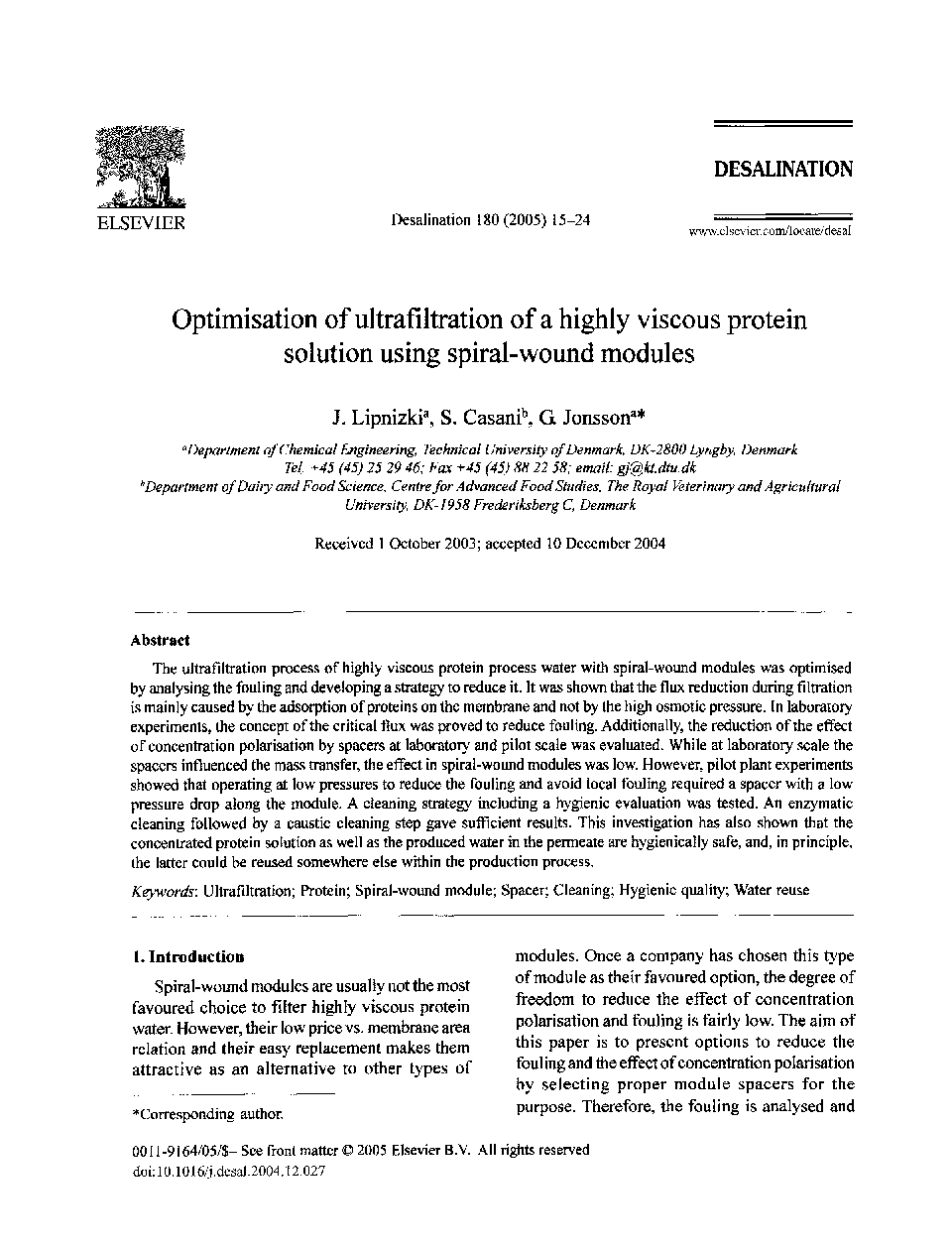| Article ID | Journal | Published Year | Pages | File Type |
|---|---|---|---|---|
| 9681051 | Desalination | 2005 | 10 Pages |
Abstract
The ultrafiltration process of highly viscous protein process water with spiral-wound modules was optimised by analysing the fouling and developing a strategy to reduce it. It was shown that the flux reduction during filtration is mainly caused by the adsorption of proteins on the membrane and not by the high osmotic pressure. In laboratory experiments, the concept of the critical flux was proved to reduce fouling. Additionally, the reduction of the effect of concentration polarisation by spacers at laboratory and pilot scale was evaluated. While at laboratory scale the spacers influenced the mass transfer, the effect in spiral-wound modules was low. However, pilot plant experiments showed that operating at low pressures to reduce the fouling and avoid local fouling required a spacer with a low pressure drop along the module. A cleaning strategy including a hygienic evaluation was tested. An enzymatic cleaning followed by a caustic cleaning step gave sufficient results. This investigation has also shown that the concentrated protein solution as well as the produced water in the permeate are hygienically safe, and, in principle, the latter could be reused somewhere else within the production process.
Related Topics
Physical Sciences and Engineering
Chemical Engineering
Filtration and Separation
Authors
J. Lipnizki, S. Casani, G. Jonsson,
